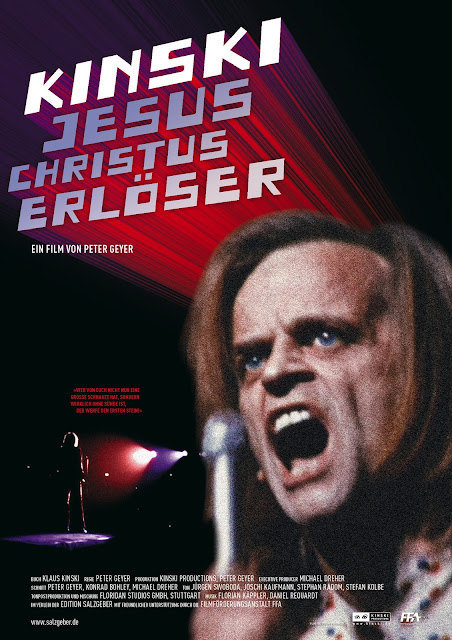The whole pinball thing was only added in to score brownie points with a influential critic, by the way. It holds no intrinsic value beyond that.
Seeing the success of the rock opera format, The Who attempted to replicate that success with their next album. The first project, called “Lifehouse”, ultimately failed to take form, but several of the songs ended up on the incredibly well-received “Who’s Next”, released in 1971. The next Who rock opera would actually come into the world two years later, with “Quadrophenia”. While not the firebrand that “Tommy” turned out to be, “Quadrophenia” featured some now-classic songs from the group, and is considered by some (me) to be the altogether better album. Does that mean that, like “Tommy”, it needed to be made into a film as well? Even though “Tommy” was a nonsensical album, and made for an even more nonsensical movie? Yes, says the Who circa 1979, and so here we are today.
Presented by The Who Films, Quadrophenia revolves around the life of Jimmy Cooper (Phil Daniels), a young mail clerk living in the heart of swingin’ 60s London. Jimmy and his friends are mods, their crazy nights spent taking amphetamines, riding scooters, dancing to top 40 hits, and beating the ever-loving shit out of any ‘rockers’ (also known as ‘greasers’, another youth subculture revolving around the aesthetic of the 1950s) they happen to find. Jimmy is a teenager who craves his own identity (that’s why he joined a group that all dress alike, you see), as well as large supply of pills and the beautiful yet elusive Stephanie, a mod girl of fairly easy virtue. Little does he realize however, that such a hedonistic existence is practically made to fail, and Jimmy is on a collision course with harsh reality. Set to the music of The Who, of course.
It’s a similar plot to a movie we’ve already seen before in 1995’s The Basketball Diaries, where teenagers who like to take drugs just end up in a spiral of shit. In TBD it was a bit on the nose, but you could see the arc rather clearly: Jim has a life and takes drugs, he can’t cope with school life and his friends death so he takes harder drugs, we see Carroll’s life and we can see the linear downward progression. I’m finding it difficult to articulate what I’m trying to say, but in Quadrophenia you don’t really get the sense of action/consequence. Every significant negative event except one happens near the end of the movie, to the point where it doesn’t feel like a natural reaction to what Jimmy has done over the course of the film. Rather it’s all piled on at the tail end of the movie, as if they spent so much time filming people dancing to all the happy 60s music that they forgot this was supposed to be a depressing movie. I could be exaggerating or biased towards TBD, but if you’re trying to condition the audience to feel sympathy for the character, shouldn’t you make a character you can feel sympathy for? The Jimmy you see at the beginning of the movie is an obnoxious pissant, and that’s the Jimmy you see for the rest of the film. There’s no character growth as there is in The Basketball Diaries, Jimmy doesn’t seem to learn anything from his experiences, so what’s the point? If Shakespearean tragedies have the cathartic moment of release, this one has the apathetic shrug.
The thing about operas is that the story portion is generally not the important part of the production, but rather the music/singing (lookin’ at you fat ladies in metal bras). That being the case, I don’t think there’s anything the movie provides that listening to the album would not, aside from Sting as Ace Face I guess. I don’t believe you even get to hear one song from the “Quadrophenia” album in its entirety, so why would I even watch this movie if I was interested in that album? You’re left with an approximation of the opera story, which I mentioned is the least important part of an opera, and who really cares about the story in “Quadrophenia”? It seems like they were banking on the name recognition of The Who to carry along a plot that reads like a snuff film and makes up for likable characters with gratuitous dick shots, but it doesn’t work for me. Everything this movie pushes I’ve seen before in A Clockwork Orange, The Basketball Diaries and others, and while that isn’t bad in and of itself, it doesn’t quite set itself apart from the others in a way that makes it interesting to watch.
While there are a few redeeming moments (I do enjoy the Brighton scene), overall this movie felt overly long with no real payoff. If you’re interested in the Who you’ll do best sticking with their albums, preferably the ones before Keith Moon’s death. If you want the Who on film, just watch the footage from Woodstock and the Monterey Pop festival instead, which are both pretty damn entertaining to watch. It will help you get some idea of how The Who became so big that, like the Beatles, they could afford to make a boring movie without it affecting their legendary status.
The power of fame, baby, the power of fame.
Result: Not Recommended









